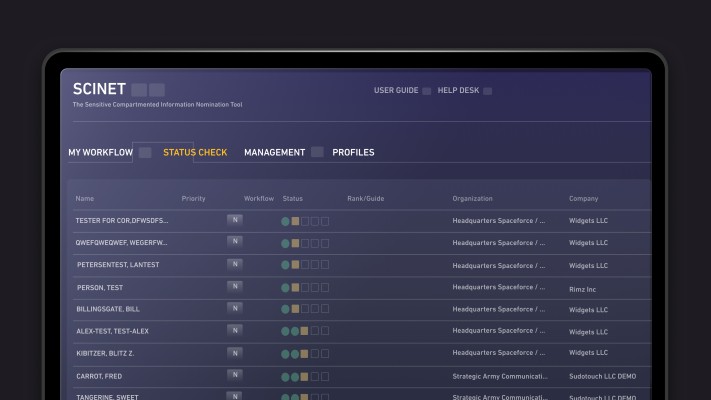In the world of defense programs and classified environments, security offices are consistently held responsible when projects fall behind schedule. As security professionals who have worked with the TS/SCI access process, we've witnessed this pattern repeatedly: when deadlines slip, fingers point toward security as the bottleneck.
But let’s be clear: Security professionals usually aren’t the root cause of delay.
Time to Set the Record Straight
Security professionals are constantly pulled away from critical work to research inquiries about why a resource is delayed or why a contractor can't yet access something. These interruptions not only waste valuable time but perpetuate a harmful narrative that misplaces responsibility.
Let's examine the actual sources of delays that security teams routinely get blamed for:
1. Incomplete and improperly populated PSQs or other applicable forms
One of the most common issues we encounter is contractor special security officers (CSSO) submitting nomination paperwork with missing or incorrect information. When a contractor submits forms with incomplete employment history, undisclosed foreign contacts, or inconsistent chronologies, the nomination process stalls—not because security is being difficult, but because the information necessary to move forward is lacking or improper.
Security professionals can't reach the proper decision with partial information, and every correction requires additional reviews and verifications. This isn't a security delay; it's a contractor training issue that never gets resolved.
2. Last-Minute Nomination Requests
We've all experienced the project manager who suddenly needs five contractors cleared and onboarded by next week for a project that's been planned for months. Or perhaps a new COR has arrived and nothing can progress until they are cleared.
SCI access management is an established process with timelines that are difficult to compress simply because program leadership failed to plan accordingly. When contracts are awarded with insufficient lead time for personnel to complete the clearance and access process, the resulting delays aren't security failures—they're project management failures.
3. Changing Requirements Without Communication
Another recurring scenario is when program requirements change, affecting the types of accesses needed, but security isn't informed until the last minute. For example, a program initially (on paper) requiring Secret clearances suddenly needs TS/SCI with specific compartments, or additional access that wasn't in the original scope.

Taking Back Control with Modern Solutions
These issues persist partly because security offices lack the tools to demonstrate where the actual bottlenecks occur. Legacy systems and manual processes make it nearly impossible to provide the transparency needed to show where nomination packages are stalling and who's actually responsible for the delays.
SCINET was designed specifically for access management across government and contractor domains and transforms this dynamic by:
- Providing complete visibility into the nomination process for all stakeholders
- Preventing incomplete packages from entering the workflow
- Setting timeline expectations based on real-time data
- Creating accountability through transparent documentation of each step
With these capabilities, security professionals can shift from defensive explanations to data-driven demonstrations of process status. The program manager wont call to ask about delays, they can simply pull up a dashboard on the basis of their need-to-know showing exactly where the nomination is in the process and what's causing any holdup.
SCINET has completely transformed the efficiency of Space Systems Command’s process to access SCI. Ask any SSO, CSSO, COR, SSR, or Program Manager at SSC to validate how their processes have reduced access timelines by an average of 60% and drastically lowered their workload.
Reclaim the Narrative
It's time for security professionals to take back control of the narrative. By implementing SCINET, government-purpose software built for the SCI SMO, security offices can eliminate the misappropriation of responsibility and place it squarely back on individuals and project leadership where appropriate.
Security teams exist to enable mission success through proper risk management—not to bear undue responsibility for poor planning or inadequate preparation. When equipped with the right tools, security professionals can focus on what they do best: protecting classified information and ensuring the right people have the right access at the right time.
The next time someone tries to blame security for project delays, be ready with the data to show the real story. The truth is in the process, and with the right systems in place, that truth becomes undeniable.








